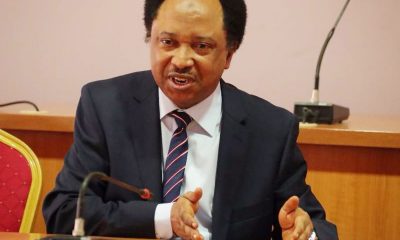The Nigeria Governors’ Forum (NGF) have called for increased funding from the one per cent to three per cent for the basic health care provision inorder to achieve the Universal Health Coverage (UHC).
Alhaji Aminu Tambuwal, Chairman, NGF and Governor of Sokoto state, made the call at a high level forum on SDGs panel discussion on the “Universal Coverage and the Basic Health Fund” on the sidelines of the 28th Nigerian Economic Summit.
Tambuwal said increased funding would ensure more Nigerians had access to health care services and reduce the burden of out of pocket expenses for health services.
“On funding we have advocated at this interactive session that since the basic health provision fund act says at least one per cent should be allocated annually.
” We can rely on that provision that says at least increase it to two or three per cent,” he said.
He noted that inadequate funding and human resources, as well as insecurity were the bane for achieving effective implementation of the Basic Primary Health Care Fund ((BPHC) in the country.
” That is another solution to the constraints of funding and then the private sector participation in funding and all partners that are in healthcare should possibly give some funding to the primary health care projects that we are carrying out in all of our states.
“Insecurity demands collective efforts as the federal government and states are doing their best to ensure that we stem the tide, so it’s an ongoing effort.
“We have to work hard to improve the packaging and welfare of our medical personnel both at the federal and state governments for us to arrest the problem and challenge of brain drain in Nigeria, ” he said.
Speaking on the proposed state contributory funding for health, Tambuwal assured that the issue would be presented at the next Economic Council meeting for deliberation and possible outcomes.
“We will present it at the next economic council meeting to be presided over by the vice president, where the minister of finance will be in attendance and all the state governors are expected to be in attendance.
” And once we have the consensus of the governors and NEC, we believe that will come into force, ” he said.
AdvertisementOn her part, the Minister of Finance, Budget and National Planning, Hajiya Zainab Ahmed said a framework had been designed to monitor and ensure accountability in the disbursement and utilisation of the Basic Health Care Provision Fund (BHCPF) by states and HMOs.
“To insulate on the Basic Health Care Fund we have made provision to put them on the first line category which means that consistently, one percent accrued from the Federal account to that fund.
” we want to make sure that what is provided for is used and is used properly.
” on our part we have committed to ensuring increase funding for the health sector not only the fund but for the health public-sector more broadly.
” In the 2023 budget, the total aggregate budget for the Health sector is 8 per cent,” she said.
Also, Dr Chris Isokpunwu, Director and Secretary, Ministerial Oversight Committee (MOC), BHCPF, stressed the need to block leakages and institutionalise accountability, as well as increase contributory funding for BHCPF to 25 per cent by state governments.
Isokpunwu revealed that based on available statistics, one trillion naira was needed annually to effectively cover the basic health care of Nigerians.
“There are at least 86 to 100 million Nigerians, for each of our beneficiaries will pay N12,000 per anum for now.
” So if we have 86 million people on board at N12,000 that is approximately a trillion naira including cost of operation and all of that per anum because premium will pay for each of our beneficiaries for one year.
” So every year we have to pay for those beneficiaries untill they are taking out of poverty. The whole essence of this is to reduce out of pocket expenses for Nigerians,” he said.
On counter funding by state governments, Isokpunwu added that “states need to demonstrate in their budgets that they have released an amount equivalent to 25 per cent of what we have disbursed to them for primary health care and social health insurance services.
” Any state that has met that condition will be seem to have complied with it and qualified for further disbursement,” he said.


 Comments and Issues2 days ago
Comments and Issues2 days ago
 Business6 days ago
Business6 days ago
 Business1 week ago
Business1 week ago
 Business1 week ago
Business1 week ago
 Business5 days ago
Business5 days ago
 News6 days ago
News6 days ago
 Education7 days ago
Education7 days ago
 Comments and Issues5 days ago
Comments and Issues5 days ago















